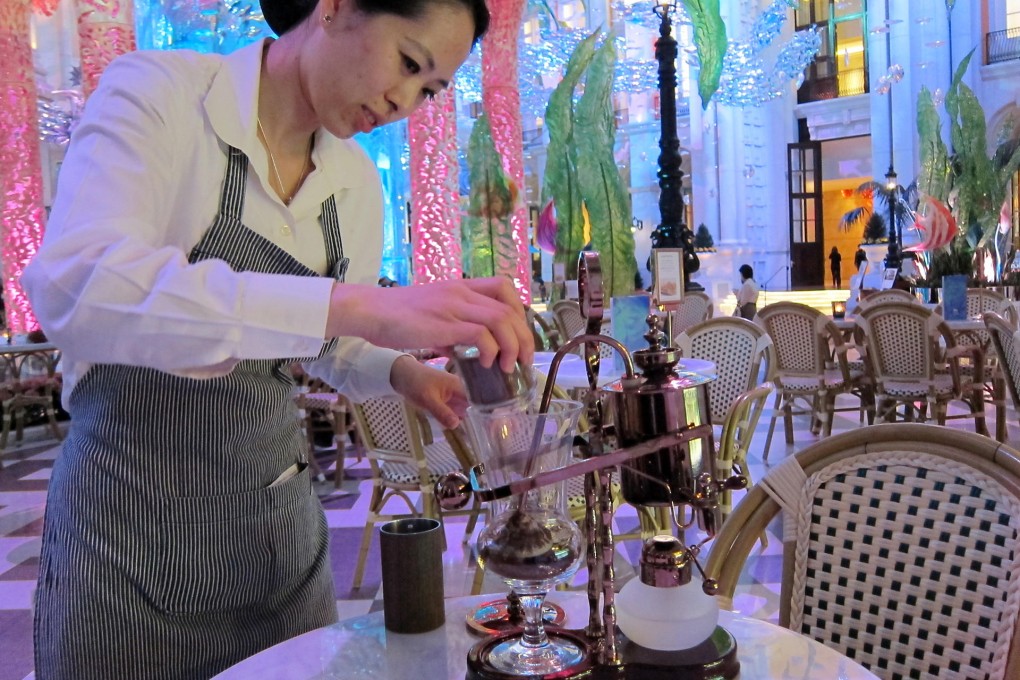Fancy an 'elephant dung' coffee? Visit Macau to taste most expensive beans in the world
Adventurous visitors to Macau line up to try unusual beans costing US$1,500 a kilogram

Whether its description involves an expletive that has to be deleted or it is hailed as God's gift to caffeine aficionados, "elephant dung" coffee is the most expensive cup on the planet.
Also known as black ivory, it costs US$1,500 a kilogram, easily exceeding the price of its similarly processed cousin, kopi luwak, or civet coffee, which ranges in price from US$500 to US$1,000 a kilogram.
And the ferry trip to Macau - the only place where you can try this coffee in China - will cost you less than the drink, which will set you back 488 patacas for 35 grams - plus service charge.
The labour-intensive process behind the coffee starts with orphaned elephants in Thailand. They are fed Thai Arabica coffee berries, which are them collected from their faeces after a period of "natural fermentation".
Kopi luwak is created in the same way, using the Asian palm civet.
Just 200 kilograms of elephant dung coffee are produced every year, as it takes 33 kilograms of coffee berries to yield just 1 kilogram of the coveted stuff.
The final product supposedly has aromas of dark, nutty chocolate and tastes of cherry and tobacco.